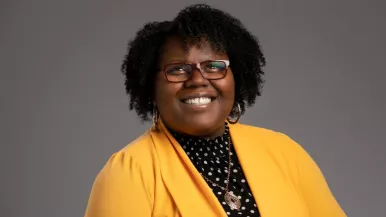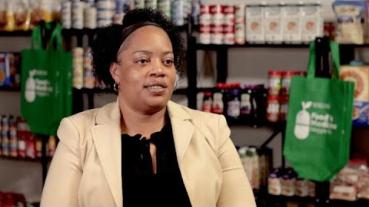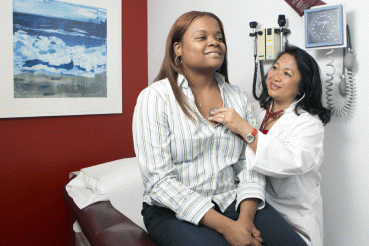Eugenia R. Olison, MEd, LPC, has been selected to serve on the strategic advisory committee for Chicago’s Five-Year Plan on Homelessness. Olison is a program manager for the Center to Transform Health and Housing at Rush University Medical Center.
The Center to Transform Health and Housing was founded in 2021 during the height of the COVID-19 pandemic to address the intersecting issues of health and housing equity. Since its launch, the center continues to provide health and social care services for people in shelters and those facing housing insecurity throughout Chicago.
Olison hopes this new committee will be able to connect leaders and experts from different sectors to better address the root causes and social conditions that impact housing stability in Chicago.
“This shows people that they're not alone in this fight and that we are coming together to create a plan that works," she said. “There are so many people, organizations and communities in the city of Chicago that have an interest in addressing homelessness.”
The inaugural meeting was held in November, and insights gathered from these ongoing sessions will help guide the creation and implementation of the city’s five-year plan.
Olison understands that the goal to end homelessness may feel ambitious, but she hopes this committee and plan can bring the community closer to sustainable and stable housing for everyone who needs it. She and her team are dedicated to connecting strategically with groups inside and outside of Rush. She believes that the relationships formed through initiatives like the strategic advisory dommittee are the building blocks needed to make systemic changes.
“Creating and sharing our plan to address homelessness creates a space where we can be held accountable to our promises,” she explained.
Rush has a long history with the city of Chicago and has been called upon in the past to help navigate public health crises. In 2023, when the center along with the testing and vaccination team joined forces with the city to support New Arrivals with vaccinations and other clinical care services.
Over the years, the center has adapted to the shifting needs of those experiencing housing insecurity. Olison and her team rely on building connections and listening to those with lived experiences and expertise to help them best meet the needs of those they serve.
“From people traditionally experiencing homelessness in Chicago to the New Arrivals, our team has collectively provided medical and social support in ways that have lasting impact. Calling on volunteers from throughout the institution to stand up a mobile medical response in the midst of crises is what we have done time and time again.”
For those looking to support unhoused communities, Olison recommends reaching out to local representatives and advocating for initiatives that promote safe and sustainable housing for everyone. You can also give directly to the Center to Transform Health and Housing and support its ongoing work.




